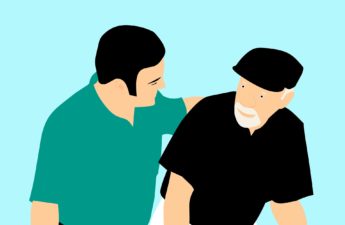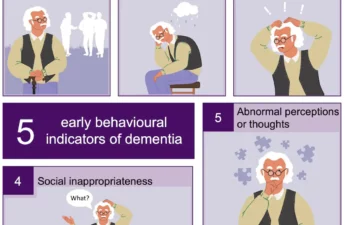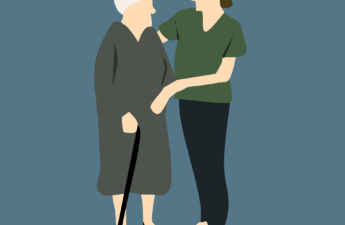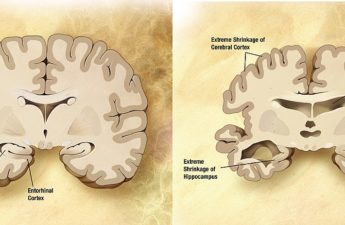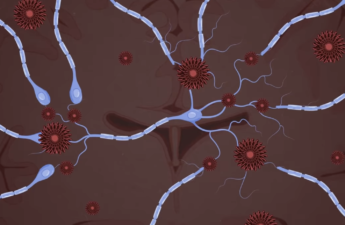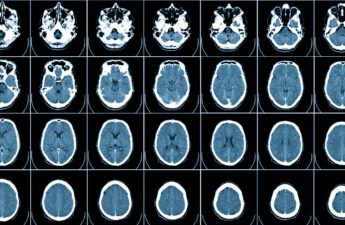Category: Dementia
Hospice care for those with dementia falls far short of meeting people’s needs at the end of life
Strikingly, only 12% of Americans with dementia ever enroll in hospice. Among those who do, one-third are near death. This is in stark contrast to the cancer population: Patients over 60 with cancer enroll in hospice 70% of the time. In my experience caring for dementia patients, the underuse of hospice by dementia patients has more to do with how hospice is structured and paid for in the U.S. than it does patient preference or differences between cancer and dementia.
More than a third of people with dementia don’t know they have it – what to do if you suspect your partner has the condition
Dementia can present very differently in each person, so it’s about knowing what’s normal for your loved one. A person who has always been conscientious and organised starting to unravel is very different from a scatterbrained person just being slightly more scatterbrained.
Lifestyle changes can reduce dementia risk by maintaining brain plasticity — but the time to act is now
There are several new drugs making their way to the market for Alzheimer’s disease (one of the most common forms of dementia). However, they are still far from a cure and are currently only effective for early-stage Alzheimer’s patients. So lifestyle changes may be our best hope of delaying dementia or not developing dementia at all.
Early indicators of dementia: 5 behaviour changes to look for after age 50
Five signs to look for: Apathy, affective dysregulation, lack of impulse control, social inappropriateness, and abnormal perceptions or thought.
Aging with a healthy brain: How lifestyle changes could help prevent up to 40% of dementia cases
By adopting positive lifestyle habits, we could theoretically prevent about 40 per cent of dementias. While there is no guarantee of warding off cognitive decline, people can greatly reduce their risk of dementia by increasing their physical activity levels, ensuring they are mentally active and increasing social contact, while avoiding smoking and limiting alcohol consumption.
Dementia linked to repetitive brain trauma diagnosed in a female athlete for first time
Chronic traumatic encephalopathy (CTE) is a devastating form of dementia which causes a decline in brain functioning and increased risk of mental illness. It is increasingly associated with athletes who play contact sports, such as football, boxing and martial arts.
Pace as important as 10,000 steps for health, studies find
“The take-home message here is that for protective health benefits people could not only ideally aim for 10,000 steps a day but also aim to walk faster.”
What allegations of Alzheimer’s research fraud mean for patients
It might be a stretch to say all Alzheimer’s research is now compromised. But the allegations can prompt us to ask whether the governing bodies of research and drug approvals are truly effective.
How your status, where you live and your family background affect your risk of dementia
Socioeconomic status has been closely linked to a range of health disorders, and dementia is no exception. Studies across multiple countries have shown people with higher socioeconomic status are less likely to develop dementia.
The FDA approved a new drug to treat Alzheimer’s, but Medicare won’t always pay for it – a doctor explains what researchers know about Biogen’s Aduhelm
The core of the issue surrounding this drug is simple: Does it actually work? Here’s an explainer on Aduhelm, the new drug to treat Alzheimer’s.
What is aphasia? An expert explains the condition forcing Bruce Willis to retire from acting
Almost everyone with aphasia struggles when trying to come up with the names of things they know, but can’t find the name for. And because of that, they have trouble using words in sentences. It also affects the ability of those with the condition to read and write.
Risk factors that determine whether you’re more or less likely to develop cognitive decline
Why some people with mild cognitive impairment develop dementia while others don’t has long been a mystery. But a recent study has identified several factors that determine whether a person is more or less likely to develop mild cognitive impairment. These findings might give us a clue about who might be more likely to develop dementia.
‘Brain fog’ during menopause is real – it can disrupt women’s work and spark dementia fears
For nearly two-thirds of women, menopause comes with an undesirable change in memory.
Cataract surgery linked with lessened dementia risk, UW study finds.
Results reported in JAMA Internal Medicine associate cataract surgery with 30% lower risk of dementia in aging population.
Alzheimer’s Drug Targets People With Mild Cognitive Impairment. What Does That Mean?
Yet this narrower recommendation raises questions. What does a diagnosis of mild cognitive impairment mean? Is Aduhelm appropriate for all people with mild cognitive impairment, or only some? And who should decide which patients qualify for treatment: dementia specialists or primary care physicians?

